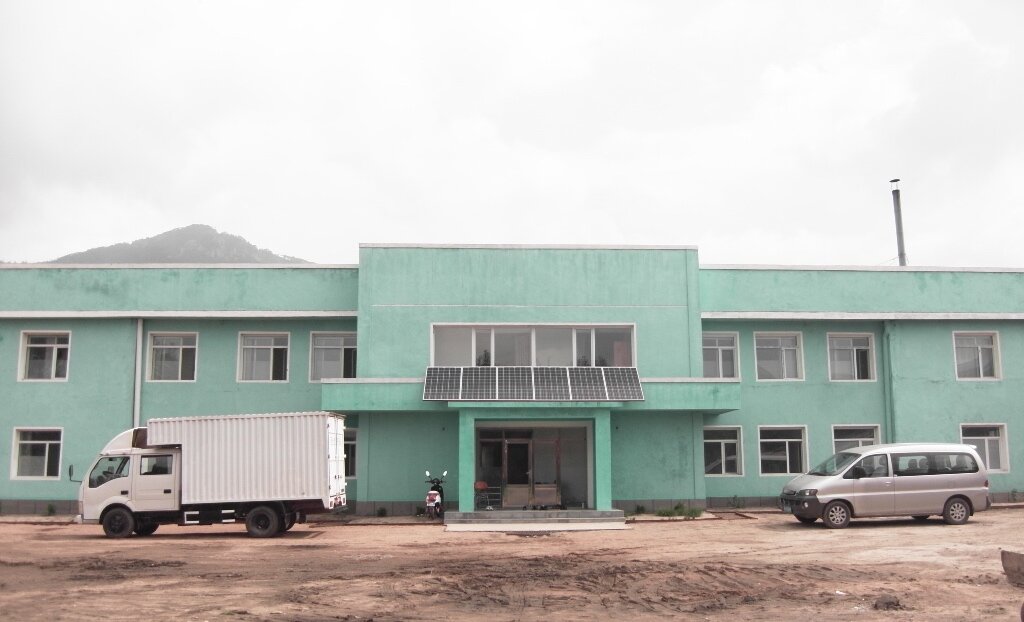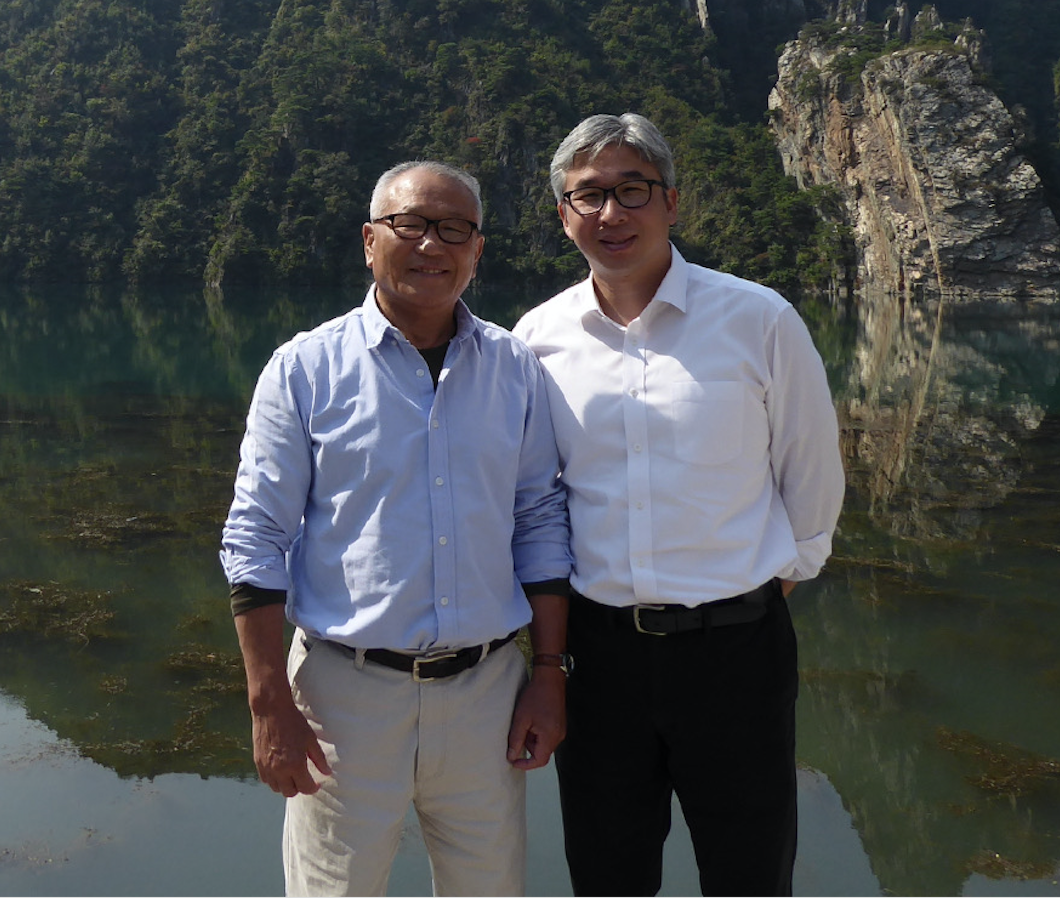A Tribute to Mr. Yoon- Shoe Manufacturer CEO in the DPRK
When we first told Stephen’s father that we were planning on going to the DPRK to provide humanitarian assistance, he called us crazy. “What? Help those who invaded our country in the Korean War? You’re out of your mind!” he exclaimed.
But despite his initial response, the more he thought about the possibility of visiting and working in the North, the more his interest was sparked. Being a young child during the Korean War he had lived through the separation of the two countries. As South Korean born and raised, although he thought it crazy to reach out to them, he started to realize that inside of him was also a desire to visit the DPRK.
After much thought, my father-in-law began to imagine what it might be like to work inside North Korea. With approximately 20 years of shoe manufacturing experience in South Korea, he started to write a business proposal for the Rason Free Economic Zone in the northeast region of North Korea. He had the unique business expertise and the cultural understanding to successfully venture into business in the DPRK.
Therefore, when our family departed for China to establish a base along the Sino-DPRK border, Stephen’s father joined us. He had the expertise and passion to work inside, but the main obstacle to starting a social enterprise in North Korea was funding. Where could we find investors willing to take a financial risk in the DPRK?
One day as Stephen was heading out from a humanitarian trip inside the NE Free Economic Zone, he happened to ride public transportation with an American gentleman who also was a businessman. A few minutes into their conversation, they immediately found common ground. “If your father is prepared to run a business in North Korea, my company would be interested in investing in his expertise.” It was settled. Within a few months’ time, my father-in-law was taking trips inside the DPRK proposing his business plan to North Korean counterparts.
Shoes were of great interest to North Koreans. The DPRK had few manufacturing companies inside the country, and many residents had no choice but to wear cheaply-made shoes imported from China. Our North Korean guide took us to visit a local shoe manufacturing company and meet the manager. The local manager could not contain his excitement. Their company employees, although assigned to manufacture shoes, were occupying their time by shredding dried fish. They currently had no orders or work for manufacturing shoes.
His business proposal was immediately put into action. In June 2008, a social enterprise in the form of a shoe manufacturing project was officially launched in the Rason Special Economic Zone thanks to investments from a U.S. corporation. The first shoe outsourcing contract was signed to provide jobs to 120 local employees, and this gave us a legitimate reason for foreigners to reside inside the DPRK through the business. The new social enterprise paid per shoe produced through this business venture in the DPRK.
Shoe Manufacturing Company in Rason, DPRK
The goal of the company was to provide a sustainable income to women and their families through long-term employment. By and large, this goal was achieved as local North Korean women with sewing skills were provided long-term sustainable jobs. The shoe manufacturing company not only benefited female laborers of North Korea but was also able to provide over 55,000 children’s winter boots in five countries including Mongolia, China, and Russia via UNICEF and other international NGOs.
For several years, the shoe manufacturing business continued with an outsourcing contract, even though the company had to move locations three different times. It came to the point, though, that it was no longer advantageous for the company to continue to outsource. Instead, our team established a foreign-owned independent trading company in the DPRK that would allow the manufacturing of our own shoes and more direct control of the business. This process and negotiation was not easy, but Stephen’s father was able to push the proposal forward and hire over 40 local employees under our own payroll. It turned out to be perfect timing. Within a year’s time at the end of 2017, all foreign joint ventures were forced to close in the DPRK due to global sanctions. As a fully foreign-owned entity, the company was able to legally continue operations.
Unfortunately, sanctions directly impacted the company’s business. The shoe company’s last export order was through the humanitarian organization World Vision to provide winter snow boots for children in Mongolia. Since then, exports of shoes were no longer feasible, and the company turned instead to internal sales to keep the social enterprise afloat. Through individual women working privately in the DPRK marketplace, the shoe manufacturing company was able to sell 11,869 pairs of shoes.
These shoes were sold in small quantities in a micro-financing system as individual mothers would first receive shoes and then repay the shoe company after those shoes had been sold in the marketplace. Ordinary women in North Korea working in the local marketplace were empowered through this micro-financing system of purchasing and selling shoes to provide for their families. Shoes were sold in four marketplace cities including Rajin, Chongjin, Pyeongsong, and Pyongyang. Even with this micro-financing system, the company primarily maintained its operation through orders from world-wide donations that provided winter shoes for children and orphans throughout the DPRK. Over a span of nine years, over 100,000 pairs of shoes have been manufactured and donated to the children of North Korea.
The shoe manufacturing company was primarily sustained because of Mr. Yoon, my father-in-law. He spent ten full years establishing, building, and developing the shoe manufacturing business inside the DPRK. His original perspective of North Korea radically transformed from viewing North Koreans as enemies to never wanting to leave the country. He fell in love with the people of North Korea to the point that he even expressed his wishes to retire there and spend the remainder of his days inside the nation.
Stephen Yoon and his Father in Gangwon Province, DPRK
But that was not to be the case. In September 2017 when the Geographic Travel Restriction was issued by the US Department of State, Stephen’s father, our family, and all US citizens on the business team were forced to leave the DPRK. The company had one last fair-well party on August 15th, Korean Independence Day, to commemorate the sweat and tears he had invested into the company. It was a bitter-sweet parting. My father-in-law never anticipated that he would not be able to return to the company that he had built from the ground-up for ten, long years in North Korea.
That was the last time he was in the DPRK. As a result, Stephen’s father has retired from business. It is unlikely that he will ever be able to properly say good-bye to his colleagues and employees in the North as the years pass by. Although these circumstances are regrettable, we know that the people of Rason will never forget him. His leadership, entrepreneurship, and passion for reconciliation on the Korean Peninsula will continue to live on in the hearts and minds of our teammates and the shoe company’s employees in the DPRK.
Unfortunately, the shoe manufacturing company and its employees are currently suffering under restrictions caused by global sanctions and the COVID-19 outbreak. But through Ignis Community’s shoe donation program, a pair of shoes can not only be given to a child in need in North Korea but these donations will also continue to provide jobs for local women. Your support will help the company to continue its mission of providing sustainable income to women and their families in rural areas of the DPRK. To donate a pair of children’s shoes, visit Ignis Community’s website: https://igniscommunity.org/sharing-warmth

